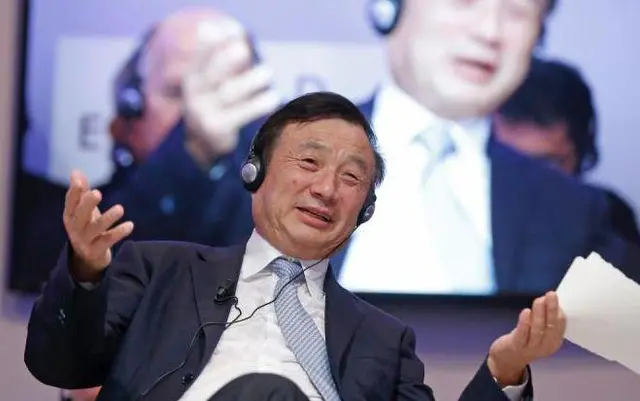Turkish government faces stern challenges to address the worsening corruption problem in the country as the world marks the International anti-corruption Day on Monday.
Turkey's rating on perceived corruption index has fallen sharply, loosing five points down to 45 out of 100 and its rank stands at 64th of 175 countries, according to the recent report by Transparency International's (TI) based in Berlin.
According to a recent survey by the Turkish Business and Industry Association, some 46 percent of Turkish businesspeople believe corruption will increase in Turkey.
Corruption increases the cost of doing business 10 percent worldwide. Its Chairman Haluk Dincer also stressed that the trend of increasing in corruption in Turkey.
Specialists said that corruption can be seen almost in every field of the society but the main sector where there is a very corruption rate is the construction sector, which is considered as the mega income generator and the profit has been shared by a very narrow strata of the society.
They analyzed that the fall of Turkey's corruption perception rate is directly related with the corruption scandals known as "Dec. 17 - 25 (2013)."
In December 2013 Turkey has been shaken by the leaked audio recording revealing an alleged conversation with President Recep Tayyip Erdogan (the prime minister at the time) and his son Bilal about how to hide a large sums of cash.
Four ministers of the ruling Justice and Development Party have also been accused of corruption. On Dec. 17 a graft probe had been issued however not yet concluded. The incident has sparked massive controversy in the public and also in the international arena.
However, Erdogan had blamed Fethuallah Gulen, a US based cleric, and his Hizmet movement attempted a coup to topple down the government and conducted the graft operation.
Economy expert and academician at Istanbul's Bilgi University Cem Baslevent said that the falling grade will effect the amount and the interests of the investment in the country carrying the potential of social unrest.
"As far as economic consequences are concerned, some financial investors may become more reluctant to allocate funds to Turkey since high levels of corruption might eventually lead to social unrest which in turn would lead to economic instability and lower returns on investments," he told Xinhua.
However he also highlighted that the foreign direct investment, may not be affected too much since some companies may prefer to operate in more corrupt environments.
"They can increase their profits by getting involved in questionable relations with corrupt officials," he added.
Baslevent also expressed his optimism about the long run and said, "the government will now come under some pressure to revise its actions so that the perceptions, and hopefully the actual situation as well, will once again improve."
Ece Saadetyan, Istanbul based documentary producer, was not as hopeful as Baslevent saying that after one year from the scandal no steps have yet been taken in the country targeting to prevent the corruption.
"No single corruption case related to the operation has been concluded," she said.
"The commission of inquiry that has been established in the assembly began its task with a great deal of delay due to the obstructions of AKP," she said. The commission had its first meeting in July 2013 with eight months of delay.
Following Dec. 17 Erdogan has ignited an extensive operation targeting the high ranking police officers believed to be the followers of Hizmet movement.
The government has sparked an anti-police operation against the police departments in several provinces removing many head of polices from their posts. The operations have still been conducting occasionally.
In the mean time on December 7, Turkish court, upon the appeal of AKP's members of parliaments, officially banned media coverage of the parliamentary investigation against four former ministers over corruption allegations.
The decision ruled that the ban was issued to "prevent damage to the individual rights" of the former ministers.
"Amid all these limitations, ban and prevention it is not possible for Turkey to improve its its corruption perception," Saadetyan said.
Journalist and writer Serdar Korucu said that most of the Turks and even the pro-AKP people believe that the corruptions have been happening at the highest levels of the government.
"One of the clear example proving the high ratio of the corruption perception in the public was the latest announcement of Prime Minister Davutoglu's chief adviser Etyem Mahcupyan," Korucu said.
Among the corruption allegations the one which attracted public controversy the most is related with the former economy minister Zafer Caglayan.
He was accused of receiving a special watch worth 300,000 dollars as a bribe from a Azeri-Iranian businessman. He has also been accused of making 16 trips by using same businessman's private jet including the trip to Mecca for being pilgrimage.
His wife and two sons have been reportedly flew to Mecca with the same jet.
Turkey's former European Affairs Minister Egemen Bagis, Interior Minister Muammer Guler and Environment Minister Erdogan Bayraktar have also been accused of corruption.
Facing the pressure from the society, Deputy Prime Minister Ali Babacan said that the government is set to complete a detailed reform package to increase economic transparency in Turkey. Enditem
 简体中文
简体中文

